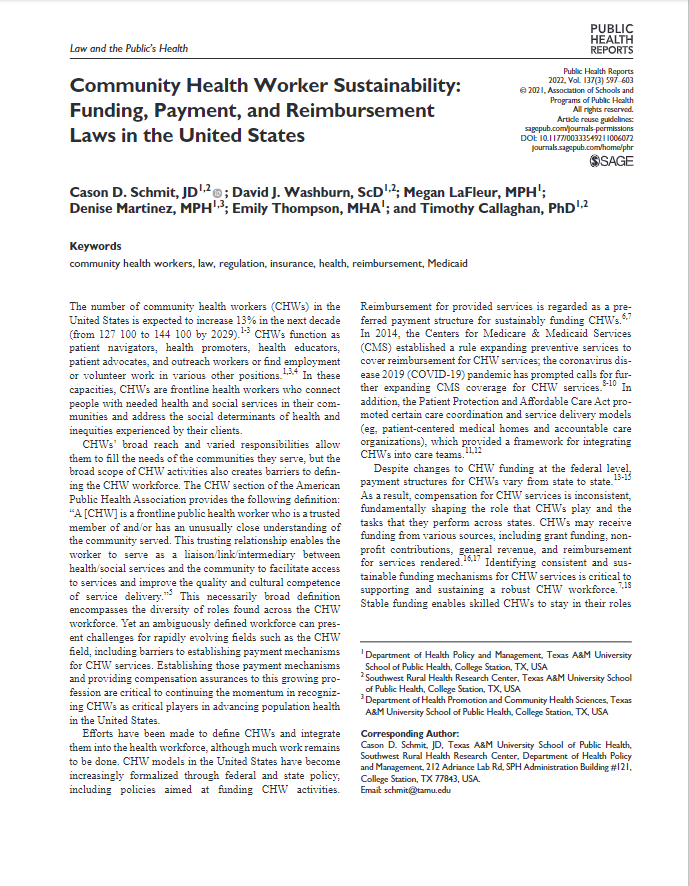Headline
A comprehensive review of state mechanisms to reimburse for community health worker services.
Context
Across the United States, the health care system is increasingly turning to community health workers (CHW) as a solution to better address health and health-related social needs by linking people with health and social services in their communities. Payment mechanisms for this evolving workforce, however, are inconsistent, creating barriers for sustaining long-term growth. In addition, the lack of consistent terms of or qualifications for CHWs also presents problems for sustainability. This research builds on a review conducted by the CDC in 2016 on CHW funding laws, specifically examining state-level CHW funding, and identifying funding mechanisms to sustain a robust CHW workforce.
Findings
Through an analysis of CHW laws in US states and territories, the researchers identified laws supporting funding for CHWs in 24 states and the District of Columbia. It uncovered states with laws providing funding mechanisms for CHW workforce development, including training, supervision, recruiting, and loan forgiveness. It also identified states with laws supporting funding mechanisms for CHWs engaged in specific activities, including mental and behavioral health, clinical trial recruitment, school-based services, maternal–child health, HIV/AIDS services, and education and health promotion. The authors suggest that the wide diversity in CHW roles, and the ambiguity around CHW qualifications, can lead to challenges in legal funding, contributing to the lack of long-term sustainability. Overall, the authors found that legal funding mechanisms for CHWs have expanded since the CDC’s study in 2016 of CHW laws.
Takeaways
This study provides policymakers with a comprehensive summary of state actions to invest in and support greater sustainability in the CHW workforce. It suggests the need for clearer, standardized terms for CHWs and more stable funding mechanisms for funding, payment, or reimbursement for CHW services. Drawing from state experiences, it suggest that states that have both invested in CHW workforce development and enacted CHW funding mechanisms are better positioned to advance the role and value of CHWs.

